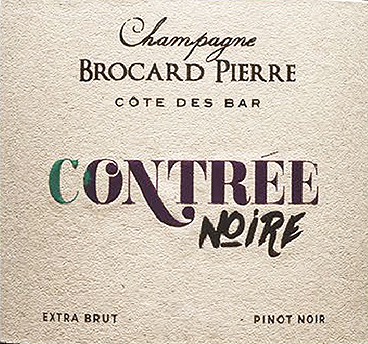Brocard Pierre
Contrée Noire Champagne Extra-Brut 2018
Brocard Pierre Contrée Noire Champagne Extra-Brut 2018
Vigneron Thibaud Brocard is the fifth generation of Champagne Brocard Pierre to work his family vineyards near the village of Celles-sur-Ource in the Seine river valley, known as the Barséquanais area of the Côte des Bar, the southernmost subregion of Champagne. Vineyards are entirely estate-owned and farmed organically with both northern and southern exposures.
Champagne Contrée Noire is a Blanc de Noir from 100% pinot noir grapes, harvested in the 2018 vintage from the Frillon vineyard, planted in 1962, located near the village of Celles-sur-Ource. Soils consist of both Kimmeridgian and Portlandian limestone and clay. The vineyard is south-facing but maintains great freshness because it is in a valley between two forests, protected by pine trees on the ridge. The vineyard has excellent ventilation, with cooling breezes most of the year.
Thibaud works non-oxidatively and notably utilizes nitrogen in the winery to protect his tanks, which helps him keep the use of sulfur dioxide in the winery to the absolute minimum, while preserving fruit and vineyard expression. Contrée Noire spends five years on the lees in bottle before release, giving it one of the best quality-to-value ratios in the world of Champagne.
Contrée Noire shows great complexity and definition, with an incredibly long-finish designed to elevate food pairings. The nose is dominated by red fruit, mushroom, and brioche. To the palate, it is focussed, vinous, and substantial, with no heaviness and incredible depth and minerality.
Vinification – Grapes are manually harvested and then gently pressed in a vertical Coquard press. Only the heart, or the cœur de cuvée, of the first pressing is utilized. Primary fermentation is spontaneous with native yeasts in stainless steel tanks. Malolactic fermentation is natural and spontaneous and the wines are not filtered or cold-stabilized. After secondary fermentation in bottle, the wine ages on its lees for five years before disgorgement and a final dosage of 1g/L of organic cane sugar.


